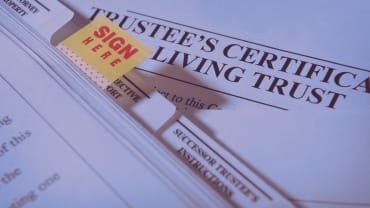Our previous blogs have discussed HMRC's Trust Registration Service (TRS), providing guidance on first registration of trusts, as well as maintaining and updating trusts already on the register, but what other compliance matters do trustees need to be aware of?
To help you navigate these compliance obligations, here are some of the key questions you should bear in mind when acting as a trustee:
1. Has your trust been registered with the TRS under either the taxable or non-taxable regime?
For further information, please read the first blog in this series, which can be found here.
2. If your trust is taxable, have you completed the annual declarations and kept the register up to date?
This was discussed in greater detail in our second blog in this series, which can be found here.
3. Does your trust need to report under the Automatic Exchange of Information (AEOI) regulations?
- The AEOI regulations are another set of HMRC regulations aimed at combatting tax evasion.
- Trustees should carry out a review of the trust's settlor, trustees, beneficiaries and anyone else holding effective control over the trust and, where any of these individuals have a potential non-UK connection, they must be reported by the 31 May of each year, for the previous calendar year.
- A non-UK connection can include (but is not limited to) an individual's place of birth or residency, a foreign bank account or being tax resident in a non-UK country.
4. Have you considered the Register of Controlling Interests in Land (RCI)?
-This new Register which seeks to provide clarity as to who owns land in Scotland will be launched on 1 April 2022. Owners (known as "the recorded person") must provide full information as to any person who exercises control over land (known as an "associate")
-Where a trust owns land, the trustees must keep the RCI up to date whenever trustees change via resignations, deaths or new appointments/assumptions. This blog, written by my colleague Fiona Scott, provides more information.
5. Does your trust need to submit any inheritance tax returns?
-An inheritance tax return (IHT100) may be required on the creation of a trust, on the 10 year anniversary of the trust or on any transfer of capital out of a trust.
-Depending on the sums involved at each event, some inheritance tax may be due to HMRC. Inheritance tax usually needs to be paid within 6 months of the date of the event, so we would advise considering this early to avoid any interest accruing.
6. Does your trust need to submit any income tax or capital gains tax returns?
- This will depend on the type of trust and assets owned by the trustees. Further guidance can be provided by your usual Brodies contact.
Whilst these obligations may seem daunting, we can help you avoid non-compliance by providing specific advice linked to the individual circumstances of each trust. If you are looking for any assistance, please contact your usual Brodies contact or anyone within our Personal Team who would be pleased to assist.
Claire Scott is a key member of Hayley Robertson's team within the Personal & Family department at Brodies, providing services to individuals and families.
This is the third and final edition of our Trust Registration Service (TRS) series. Click here to read part 1 and here to read part 2.











